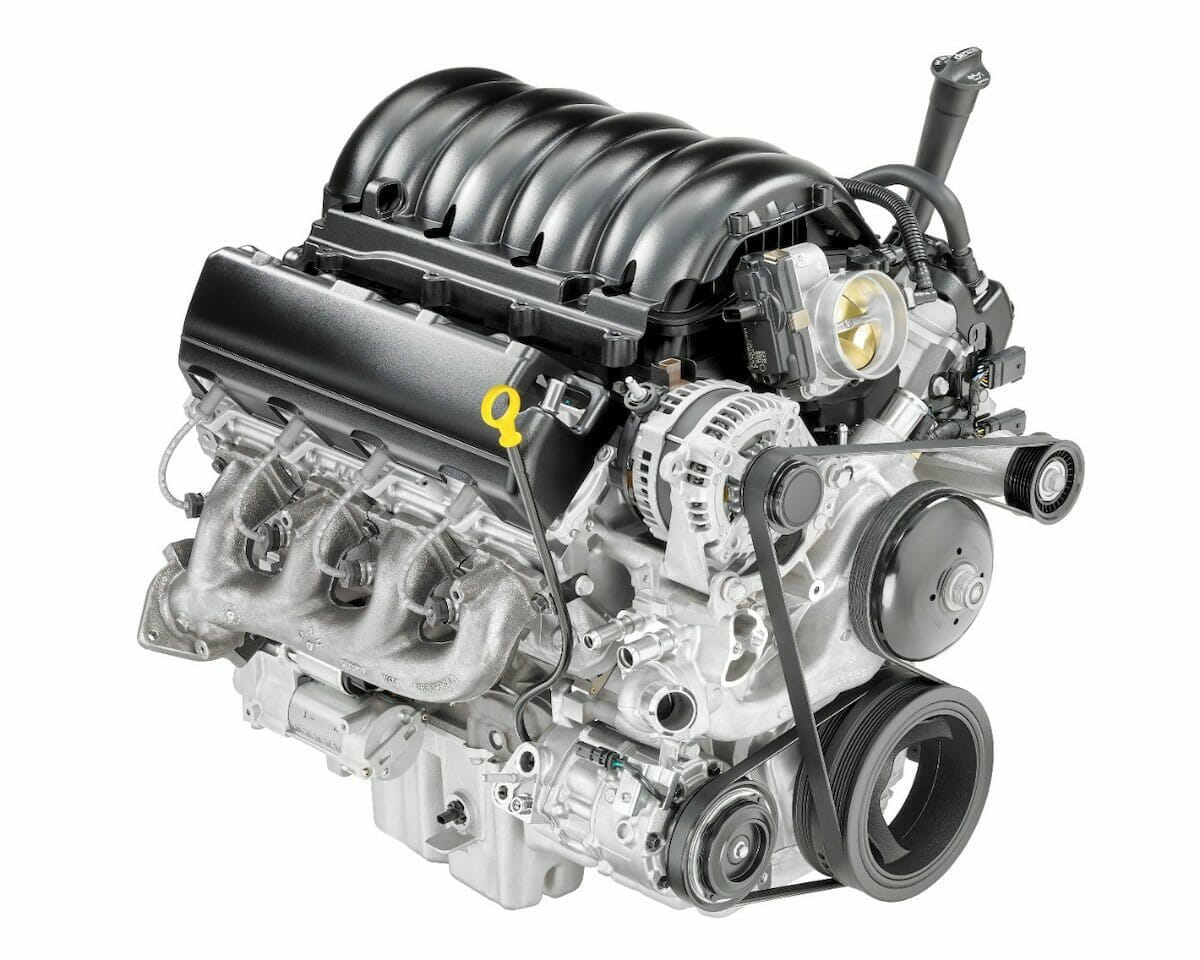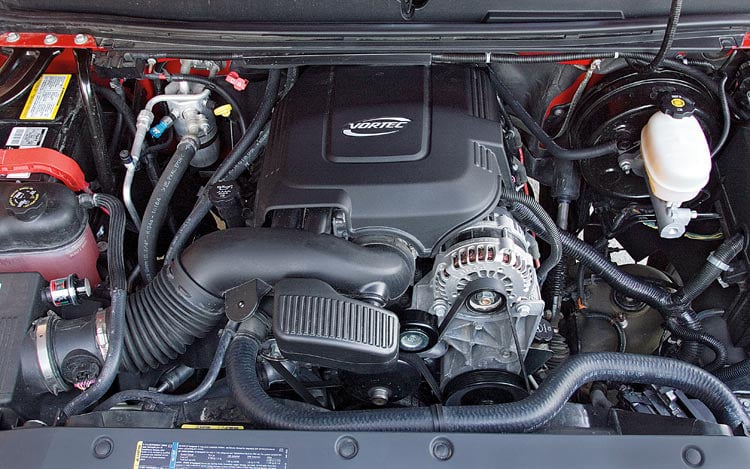
Chevy's Vortec LS engine family continues to be a dominant force among performance engines. In fact, it's hard to find an equal that can support performance enhancements as well as Vortec engines.
Table of Contents
Are you wondering if you can squeeze out even better performance from your 5.3 Vortec? Can it be done? That's what we're here to answer today. Here you will find out effective ways to get more power via performance upgrades.

It's worth noting that LS engines are largely designed to provide drivers with a reliable daily driving experience. As such, all the modifications we look at today largely add horsepower gain by default. Let's continue on to discover the best 5.3 Vortec HP upgrades for the typical LS owner.
How Much HP Does The 5.3 Vortec Have?
The Vortec LM7 original produced 270 horsepower , and 315 lb-ft torque. The Vortec's 5.2L Vortec engine design was phased out. The L33 was the high-output version. It produced 310 horsepower and 335 lb-ft torque.
We were skeptical when they first appeared on the salvage channel. For those with tight budgets, the 5.0L LM7 was a reliable LS-swap device. The DI L83 mill was equipped with a number of highly capable LS-waps.
Vortec and LS versions are the current best choices for performance in the 5.1L LM. While it is possible to argue that the current top choice in performance is due to availability and price, the real issue is the actual performance. The performance of both the Gen III and Gen IV models is impressive, especially when compared.
Vehicles With The 5.3 Vortec Engine

The Chevy Silverado is a popular vehicle that uses the 5.3 Vortec engine family. Let's use a 2016 Chevy Silverado 5.3L V8 as an example. The regular unleaded gasoline produces 355 horsepower @ 5,600 RPM and 383 lb-ft, and a 4,100 RPM range.
The L83 designation refers to the direct-injected, direct-injected 5.3L, direct inject 5.7L. It was used in the 1982 Corvettes. Chevrolet's naturally-aspirated crossfire injection system used a trick cross-ram intake design to feed a pair of single-hole throttle bodies.
The L83 xfire was the predecessor of the L98 Tuned-Port motors. It was rated at 205 HP in 1984. Most Chevrolet enthusiasts don't like the original L83, which is rated at 205 horsepower. The new gen-5 version of the L83 could change this. It will never surpass the alpha-numeric legends L88, DZ302, L88 and LS6.
The truck's V8 engine stock is a 5.3-liter V8. The stock power output remains at 355 horsepower. GM has secured the ECU/computer for the new truck. This prevents any aftermarket companies from tuning it to produce more power.
It can also be mated to an 8-speed automated transmission. The 8-speed can be used with the small V8. The first year in which the small V8 engine can be paired with an automatic transmission is this . This combination of the engine and transmission is available in higher trims. The truck can also be used as an LTZ.
Getting More Horsepower From The 5.3 Vortec
Whether you have a Chevy Silverado or another vehicle type, you must first upgrade your 5.3 Vortec if you wish to experience max horsepower. This is important for many reasons, but it also requires a significant amount of money and time.
Engine swaps can certainly give you the upgrade you're looking for. If you don't want to spend the money on such an extensive undertaking, read on for some cost-effective upgrade options for more power.
Vortec engines are ideal for performance upgrades. This is because the block can be modified to take performance parts. These engines are found in the Chevy Silverado range of pickup trucks and SUVs.
They can be used to build LS-series engines using a few GM parts or can be used as a standalone engine with aftermarket parts. There are many ways to make the Vortec 5.3-liter faster, more powerful, and more efficient.
So let's explore the various methods you can follow to increase the horsepower of your stock engine.
Affordable Aftermarket Performance Parts
Basic Component Installation
To transform the Vortec 5.3-liter engine, you must first install the basic components. This is the simplest modification that can be made to improve the engine's speed. In doing so, you can save money while still seeing extra power. Low-cost doesn't mean low-performing.
Cat Back Exhaust System
For extra horsepower, install a high-flow catback exhaust system. The device can be bolted in place using common hand tools, such as a socket set. It can be installed in as little time as one afternoon.
Next, you want to make sure you reprogram your computer. The computer adjusts for any variances in the fuel/air ratio and always returns it to the factory's specifications.
Moreover, reprogrammed computers optimize the air/fuel ratio to allow for higher-octane gases, faster exhaust scavenging, and more fuel. Reprogramming a computer is essential to increase horsepower in engines with performance chips.
Dyno-Tuning
A dyno-tuned LS engine ensures better overall performance and torque. What is dyno-tuning? Dyno tuning measures the engine's output. This includes horsepower, torque, and air fuel mixture.
Your vehicle's type will allow your technician to adjust the timing and air fuel mixture to your preference. This custom tune is possible for various engine loads and conditions. This is a unique tune-up that improves the ride and enhances the performance of your vehicle.
Dyno tuning is a way to make your car more economical and provide a smoother ride. This can also help with common problems like poor gas mileage, surging and pinging, difficulty starting your vehicle, or lack of power.
A dyno tune can be a great option if you are looking to improve the engine performance of your vehicle. Many of these issues can be solved by a dyno tune.
To enhance your vehicle's performance, a dyno tune will use the settings that best match your vehicle. A dyno tune can provide maximum power, smoother riding, and better fuel economy. It boosts your vehicle's horsepower and returns it to its stock fuel economy. It can also reduce or prevent backfire.
Throttle Body Upgrade

The throttle body is part of the engine's breathing system. It provides a passage for air entering the engine and mix with fuel before burning, creating power.
Moreover, the throttle body regulates how much air enters the engine based on what you are asking it to do. If you are driving an older car or truck, you may not be getting the horsepower that your engine is capable of.
Increasing the size of your throttle body can allow better air density in your system. This will effectively add horsepower. There are many ways of increasing the size of your throttle body. You may be able to buy a bigger throttle body from your local auto parts store. If you are more mechanically inclined, you can install a larger throttle body that will give you the extra power you seek.
If you are looking for an easy way to add horsepower on your car, upgrade to a larger throttle body. It is an inexpensive and quick fix for if your car is underpowered.
Average Priced Performance Parts
Install Long-Tube Headers
If you want to improve engine performance even more, you can increase your exhaust efficiency by installing ceramic-coated headers. The factory builds headers to meet two criteria: exhaust efficiency and cost-effectiveness.
Aftermarket companies can design their headers more extravagantly because they don't have to follow any cost restrictions. This allows you to enjoy better exhaust performance while at the same time spending only a moderate amount of money.
Replace Intake Manifold

Replace the intake manifold by an LS1 unit. The LS1 intakes were originally designed for the Camaro and Corvette but can now be retrofitted to the 5.3L Vortec engines.
Although these the factory intake requires modifications to the cold-air intake, it can significantly increase horsepower when combined with Vortec cylinder heads. For the best results, use GM performance parts so you don't have to deal with any limiting factor issues.
Air intake quality is crucial for things like fuel consumption, air density, air-fuel ratios, and more. You should also check your air filter to ensure that your vehicle is getting clean and fresh air. With an air intake upgrade, you can expect more power and torque in your 5.3 Vortec.
Upgrade the 5.3L Vortec's valve train with stiffer springs; lightweight, hardened pushrods, and roller-type rocker arms. This process is not for the inexperienced, as it involves the removal of sensitive parts. But once completed, your new push rods, springs, and rocker arms are heavy hitters that will ensure better idle quality and overall engine performance.
Expensive Modification Options
Forced-Air Induction
Forced-air induction systems are a good choice. While a forced induction system offers the best horsepower gains for the money, they can also return relatively low vehicle resale values. The cost of a typical supercharger installation could run up to $5,000, depending on the amount of engine work required.
Nitrous
Install a nitrous dioxide or methanol injection pump. Advanced racers and custom builders will enjoy significant power gains when nitrous oxide is added to any Vortec 5.3L engine. Methanol injection provides additional cooling and benefits for forced-induction systems.
Increase compression and displacement to rebuild the engine. The engine's primary components must be removed, including the crankshaft, camshaft and pistons. Now would be the time to perform a truck cam swap. Porting the heads improves combustion chamber efficiency and reduces engine stress.
Lighter and more efficient parts are also added to reduce engine stress. An engine's displacement can be increased by crankshaft adjustment. However, machining the heads of the cylinders increases the pressure at which it fires, resulting in a stronger spark.
These engine upgrades should not be attempted by novices. They can easily exceed the cost of the vehicle as well as all modifications. This is the best way to increase power in V8 engines, especially the Vortec 5.3L.
In Closing
With all of these power adders at your disposal, you can find the most suitable—and budget-friendly—option for increasing power and torque.

